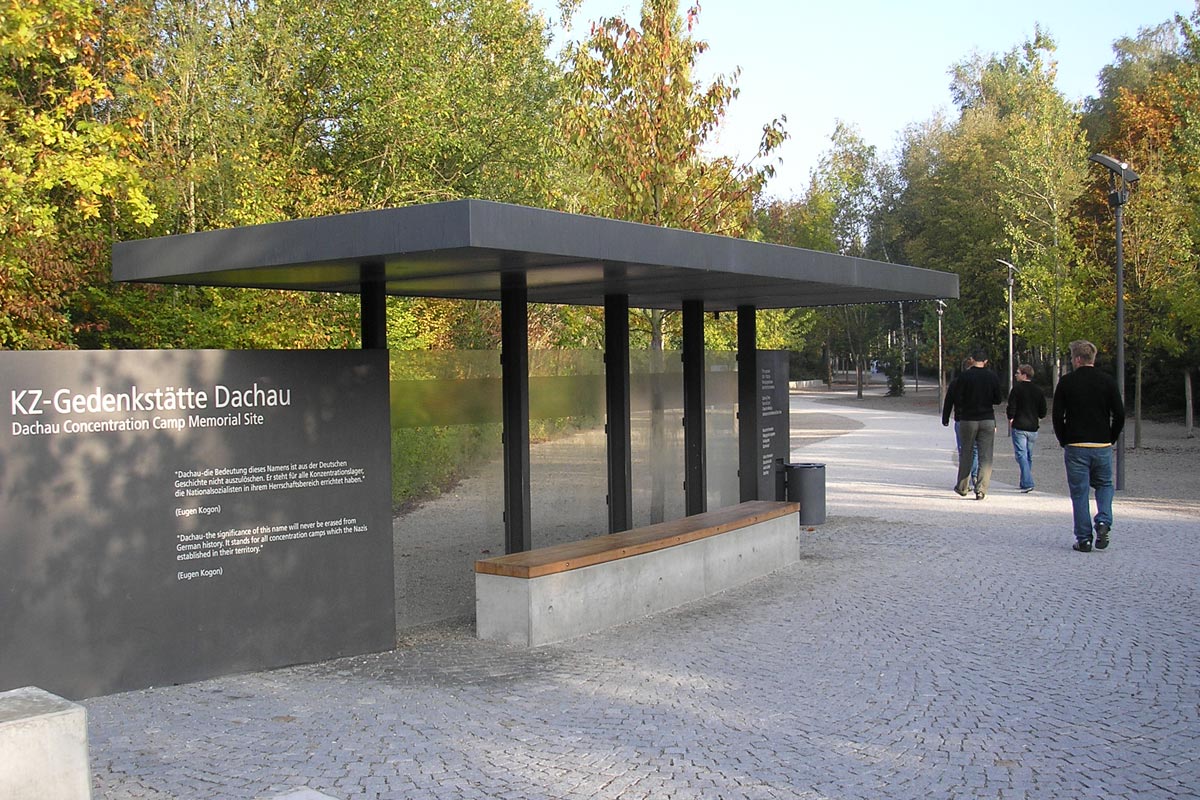Perpetrators during National Socialism:
Profiles, Motives – and the „Member of the SS in Ourselves“
A concentration camp memorial site is a place of remembrance for the victims. Simultaneously it is a former crime scene: Human beings humiliated, tortured and murdered others. Who were the perpetrators in the concentration and extermination camps, in the SS Einsatzgruppen, the “Euthanasia” centres … and at countless desks? Where did they come from? What became of them? What made them commit their deeds? Were they “completely different” to us today – or is there perhaps such a perpetrator hiding in each of us? There are no simple answers to these questions, but you can get closer to an understanding by taking a thematic tour or engaging in a study day with us.
Contents
Nazi Perpetrators – Profiles and Biographies
At numerous stops during the tour of the memorial site you will be introduced to the different areas of activity and „types“ of Nazi perpetrators. For example:
- “The “Party Veterans” from the early phase of the Nazi movement and the brutal effects of their racist and political concept of the enemy.
- Physicians, jurists and other academics, who saw themselves as the “elite” of a new, unsentimental generation and had no problem with sacrificing human beings for their “medical” experiments.
- Willing bureaucrats and technocrats of a ruthlessly efficient exploitation and extermination apparatus.
- Youngsters, who often joined the SS as young as 16 and passed through the school of terror in Dachau, the training centre of the “Death’s Head Units”.
WHY? Approximations to the motives of Nazi perpetrators
Already during the course of the tour, questions will arise regarding the backgrounds and motives of the perpetrators, for example:
- Were they sadists, driven by a pathological bloodlust?
- Were they outsiders, who felt “shelved”, “less gifted” and “failed existences” (Eugen Kogon)? Or did they rather arise from the “centre of German society” (Karin Orth)?
- Did they torture and murder in a “sphere of absolute power”, not because they had to, but because they could (Wolfgang Sofsky)?
- Were they “Ordinary Men” (Christopher Browning)? Were they human beings just like today?
Reflexion period
After the guided tour, the participants can reflect on these and other issues in a study room at the memorial site. Depending on interest and time, this can include:
- Short group work with subsequent discussion in the plenary, for instance with opinion cards on the possible motives of “the” perpetrators.
- Selected film excerpts with statements from former Nazi perpetrators.
- Documentary films on experiments by social psychologists, which unnervingly indicate, how many of us could become “perpetrators” in the right circumstances.
- Group discussions and reflexions, at the end of which the question regarding one’s own behaviour may emerge.
Organisational matters
Participants and preparation
- Thematic tours and study days about Nazi perpetrators are suitable for teenagers as of 15 years of age and for adults. No previous knowledge of the topic is required.
- If you are interested: You can find recommended reading here, including the topic “Concentration Camp SS and other perpetrators”.
- Your tour guide will readily advise you regarding the possibilities of preparing and follow up on the tour.
Your Tour Guide
During your stay at the memorial site, you will be attended to by a Dachauer Forum tour guide, who, in addition to the general training for memorial site tour guides, has educated him-/herself further for several months historically and methodologically in a workshop on Nazi perpetrators.
Thematic tour: Duration and costs
- A thematic tour takes approximately four hours. After the tour and the documentary film, there is about an hour for the final reflexion period.
- Costs per group with up to 30 participants: 110 €
- By the way: Most participants of a thematic tour and also of a study day (see below) do not feel overstrained. This is the gist of the feedback from many different groups. The authentic site, the sensitive topic, the many changes in location and methodology and the connected breaks generate a sustained intensive learning environment.
Study day: Duration and costs
- A study day takes approximately seven hours, including a lunch break of approximately one hour. This framework allows for in-depth and manifold analysis of the topic, especially during the final reflexion period.
- Costs per group with up to 30 participants: 180 €
- For lunch, please bring your own packed lunches or contact the Bistro and Café in the visitor centre of the Dachau Concentration Camp Memorial Site: www.enzmann-wilhelm-gastronomie.de
Guided Tours at the Dachau Concentration Camp Memorial Site
Guided tours for groups and single visitors

